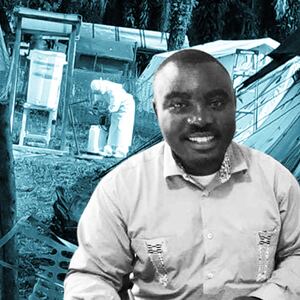Health officials are racing to retrace the steps of a pastor who brought Ebola to a new city in the Democratic Republic of the Congo—a long-feared development described as a potential “game changer” in the arc of the outbreak.
World Health Organization emergencies chief Mike Ryan said responders identified 60 people the pastor came in contact with during his travels.
"We have found and vaccinated 30, and hopefully we will have the other 30 in the next 24 hours," he told reporters in Geneva on Monday.
ADVERTISEMENT
Earlier this month, the pastor traveled from Bukavu to Butembo, where Ebola has been raging and where he preached at seven churches and had physical contact with ill worshippers, according to a statement the Congo health ministry posted on Twitter.
He began experiencing symptoms on July 9 and then took a bus to Goma six days later. The ministry said that he may have tried to hide his symptoms and identity at several checkpoints, the ministry said
He checked himself into a clinic on Sunday and tested positive for Ebola a few hours later. He has since been transferred to a clinic in Butembo.
The World Health Organization has been criticized for not declaring the Ebola outbreak in Congo an emergency—but that might be changing.
WHO Director-General Dr. Tedros Adhanom Ghebreyesus said at the Geneva press conference that an emergency committee will meet soon to reconsider the situation.
“The identification of the case in Goma could potentially be a game changer in this epidemic," he said, calling Goma “a gateway to the region and the world.”
Ebola has killed 1,665 people and infected 2,500 during the current Congo outbreak—the largest since the 2014 outbreak that killed 11,300 people in West Africa.
Health officials have been fighting the hemorrhagic fever while Congo is in the grips of a civil war. Doctors have had to contend with rebel violence and also deep distrust of medical responders.
“We’re dealing with one of the world’s most dangerous viruses in one of the world’s most dangerous areas,” Ghebreyesus said, noting that two Ebola responders were recently murdered in their homes in Beni.






